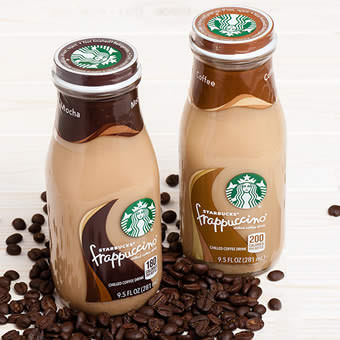Introduction
Private tag specialty foods have gained enormous popularity in recent years. With customers looking for distinct and customized food options, private label foodstuff have ended up being a go-to selection for several. In this post, we will look into the elaborate procedure of private label food manufacturing, discovering the steps involved and the key players in the industry.
The Increase of Private Label Food Manufacturers in Australia
Australia has actually observed a substantial surge in private label food manufacturers. With customers becoming much more conscious regarding their nutritional choices and demanding high-quality items, private label food production has become a financially rewarding organization opportunity. These suppliers deal with numerous sections, including private label cheese, snack food producers, and more.
Understanding Private Label Food Manufacturing
Private tag food production includes producing and producing foodstuff for merchants or organizations who then market these products under their very own trademark name. This procedure permits retailers to offer special offerings to their consumers without investing greatly in research and development or manufacturing infrastructure.
Key Steps Associated with Private Label Food Manufacturing
Step 1: Item Advancement and Customization
Private label food makers function carefully with merchants to comprehend their demands and establish personalized items. This action entails brainstorming sessions, market research, and dish solution. Personal label specialty foods are designed to accommodate specific consumer preferences and dietary needs.
Step 2: Sourcing Ingredients
Once the product specifications are settled, private label food suppliers source high-grade active ingredients from relied on suppliers. They make certain that all active ingredients satisfy rigorous quality requirements and adhere to laws set by appropriate authorities.
Step 3: Manufacturing and Packaging
After acquiring the ingredients, private label food manufacturing starts. The production centers make use of state-of-the-art tools and follow strict hygiene methods to produce secure and scrumptious food. Packaging is likewise an indispensable part of this step, guaranteeing that the product continues to be fresh while appealing to consumers.

Step 4: Quality Control and Testing
Private tag food makers conduct strenuous quality assurance checks at every phase of the production procedure. This consists of checking the ingredients, checking assembly line, and conducting sensory examinations. These measures make certain that the final product meets the finest standards.
Step 5: Labeling and Compliance
Once the products are produced and high quality evaluated, private label food suppliers take care of labeling and conformity. They make sure that all details on the item tags is accurate and follow regulative standards. This step is essential to supply customers with clear information about the product's contents and nutritional values.
Advantages of Private Label Food Manufacturing
Private label food manufacturing provides several advantages for both retailers and consumers. Allow's explore several of these benefits:
Customization: Retailers have the flexibility to create one-of-a-kind products tailored to their target market, enabling them to distinguish themselves from competitors.
Cost-effectiveness: Private label food suppliers supply economical remedies by getting rid of the need for stores to purchase research, growth, and production infrastructure.
Control over branding: Sellers can construct their brand photo by advertising and marketing exclusive tag foods under their own name. This enables them to develop count on and loyalty amongst consumers.
Flexibility: Private label food production offers merchants with versatility in terms of item offerings. They can easily adapt to changing customer fads and preferences.
Higher profit margins: With minimized manufacturing expenses, merchants can appreciate higher profit margins on private label food compared to branded alternatives.
Quality assurance: Private label food suppliers prioritize quality assurance actions, making certain that stores receive consistent and high-quality products for their customers.
FAQs concerning Private Label Food Manufacturing
Q1: What is the duty of private label food manufacturers?
A1: Private label food manufacturers play a critical duty in developing customized foodstuff for retailers or organizations who market them under their very own brand name.
Q2: Exactly how does private label food production advantage retailers?
A2: Private label food manufacturing allows merchants to supply special items, develop their brand name image, and take pleasure in greater earnings margins contrasted to branded alternatives.
Q3: Can private label food suppliers satisfy certain nutritional preferences?
A3: Yes, private label food producers can establish products customized to certain dietary needs and choices, including gluten-free, vegan, or organic options.
Q4: Are there any kind of policies governing private label food manufacturing?
A4: Yes, private label food makers should adhere to guidelines set by appropriate authorities regarding ingredient sourcing, labeling, and high quality control.

Q5: Can private label food makers take care of large-scale production?
A5: Yes, private label food producers have the abilities to deal with both small-scale and large-scale production based on the merchant's requirements.
Q6: Just how can retailers make sure the top quality of private label food products?
A6: Sellers should work together with trustworthy private label food makers who prioritize strict quality assurance actions and have a record of supplying outstanding products.
Conclusion
Private tag food production provides a globe of opportunities for stores seeking to offer special private label food products and individualized offerings to their consumers. With a structured process including product growth, component sourcing, manufacturing, packaging, and quality assurance, exclusive tag specialty foods have acquired immense popularity. By partnering with reputable private label food suppliers in Australia or any various other region, merchants can establish their brand name identity while enjoying cost-effectiveness and adaptability in their item offerings. So why wait? Dive into the amazing world of exclusive label foods today!